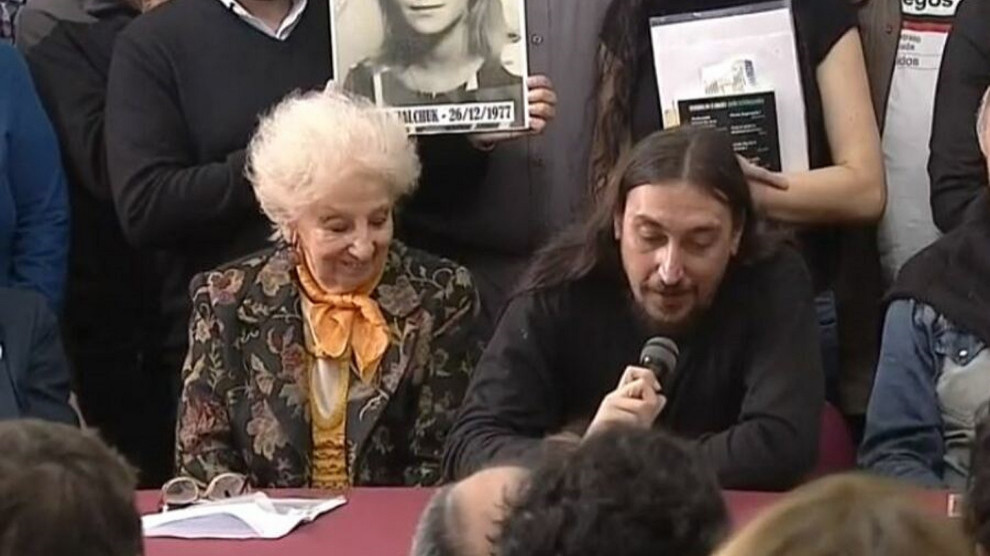"The right to identity is not negotiable", said grandson 130
Last Monday Grandmothers of Plaza de Mayo announced they had found grandson 130. In April they had found the granddaughter 129.
Last Monday Grandmothers of Plaza de Mayo announced they had found grandson 130. In April they had found the granddaughter 129.

A search that of the grandchildren that does not end as there is still to recover the identity of at least 400 more babies, taken away during the last military dictatorship in Argentina.
On Thursday, the Association of Grandmothers held a press conference with Javier Matías Darroux Mijalchuk, the 130 th grandson. He is a native of Capilla del Monte. Son of Elena Mijalchuk and Juan Manuel Darroux, both disappeared in December 1977.
"Getting my identity back - he said - is for me a tribute to my parents, a caress on the soul, a symbol of memory, truth and justice. A symbol that if I have to define at a time in the present, is represented by the hug of my uncle."
Javier Matías Darroux Mijalchuk disappeared when he was four months old, Elena Mijalchuk, his mother, was pregnant at that time. She went to an address that she obtained as a possible point of the disappearance of her husband a few days before. There she was also kidnapped. The baby was left on the street, found by a lady, and finally adopted.
Javier had indications of his possible origin, and began the search for his identity. "I resisted approaching the Grandmothers because I was fine with who I was, or so I thought, but at the end of 2006 I understood that if searching for my identity was not so important to me, I could not be so selfish because on the other side there could be people looking for me" , said Javier Matías and added to his reflection that "The right to identity is not negotiable, it is not abandonable and it is not forgettable".
Juan Manuel Darroux worked in the administrative area of the University of Morón when he met Elena Mijalchuk, who was studying as an accountant.
In December 1977 Juan Manuel met his cousins Luis Molina and Domingo Carmelo Graziadio in a bodegón in the town of Valentín Alsina and Juan Manuel asked Domingo to bring him to Paraná and Panamericana streets in the Buenos Aires suburbs.
They arrived there and as Juan looked nervous his cousin decided to return to the place after leaving and saw how he was forcibly thrown into a car. At the end of the month Elena received a letter indicating an address to find her husband, her family took her to the appointment, they saw her get into a car and they did not know more about her or Javier for 4 months.
Javier Matías was, according to records, found 3 blocks from the ESMA by a woman and given up for adoption in Buenos Aires, then, in 1999, he went to Córdoba, and there he began his search for identity. That same year, Roberto Mijalchuk, Elena's brother, denounced the disappearance of his pregnant sister, his brother-in-law and his nephew, and the National Commission for the Right to Identity (CONADI) opened a new file and began to investigate the case. Blood samples from both families were incorporated into the National Genetic Data Bank.
Although the National Genetic Data Bank established Javier's identity with the Darroux Mijalchuk family in 2016, and he was able to meet his family then, as there was no record of his parents, CONADI referred the case to the Specialized Tax Unit for Cases of Appropriation of Children to deepen the investigation, and that delayed the public disclosure of his identity.
"We hope that someone watching photos of my parents can bring information, something about them", said Javier Matías, referring to the situation of many disappeared who were erased from any type of records in the Clandestine Detention Centers, information that usually can only be recovered through the few surviving witnesses.